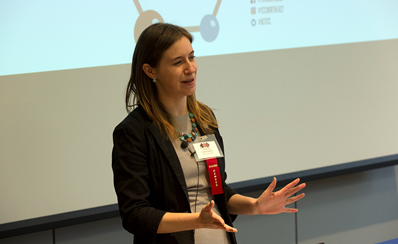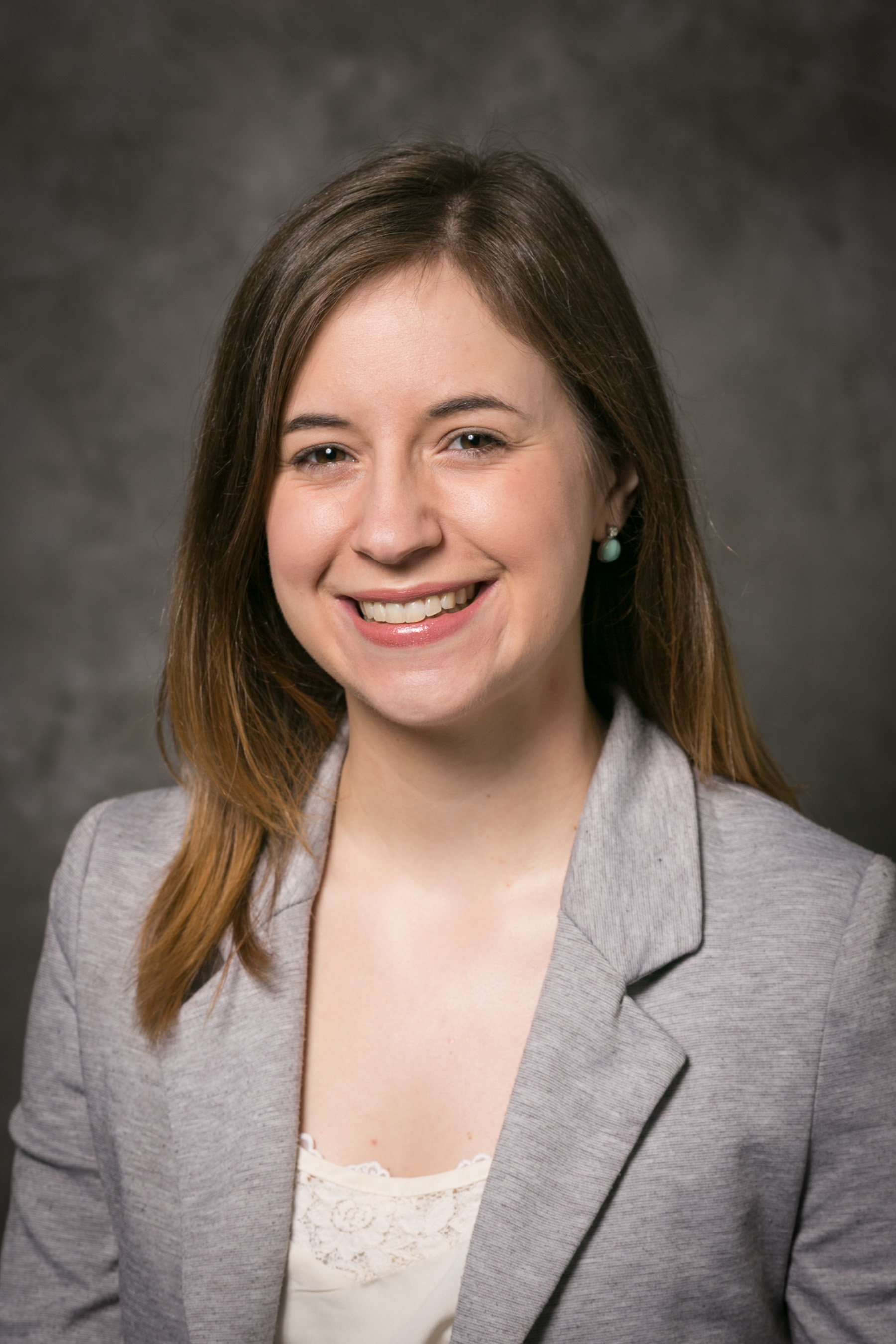“It was such a nice surprise, and really validated all the hard work I’ve done,” said Catherine Rawlins, the recipient of this year’s College of Science Graduate Student Excellence Award in Leadership.
Through extensive commitment and leadership as part of the American Chemical Society (ACS), Rawlins embodies this graduate award recognizing student leadership. As a member of the ACS, Rawlins has been a part of several committees including the Chair of the Northeastern Section Young Chemists Committee (NSYCC), an advocate and liaison on the Government Affairs Committee, a member and panelist for the Women Chemists Committee, and more. As stated in her application for the award, Rawlins credits her participation in these groups to opening up many opportunities for her. In fact, she didn’t even think of herself as a leader until her involvement in these many committees allowed her to go to a leadership conference.
“It is because of my demonstrated skills as a leader in the ACS that I have been able to present at international conferences, be invited as a guest lecturer for science communication courses, meet with congressional representatives, fundraise for local science classrooms, and build a community of young chemists in the Greater Boston Area (to name a few),” she said.

Catherine Rawlins is a PhD student in the Agar Group, which seeks to understand protein modifications that cause ALS.
Rawlins is a PhD Candidate in Chemistry and Chemical Biology, specializing in mass spectrometry imaging, and working in the Agar Group led by Associate Professor Jeffrey Agar. Their research focuses on understanding the protein modifications that cause amyotrophic lateral sclerosis (ALS), or Lou Gehrig’s disease. As Rawlins prepares to graduate this August, she will conclude her thesis work using varying techniques to image mouse brains with ALS in search of biomarkers that can help detect and diagnose the disease early on.
As she interviews and plans for her postdoctoral research this fall, Rawlins hopes to use the research skills she’s developed in combination with her clinical experiences. “I love that my field is connected to all sorts of research areas, and I feel like I can really make an impact,” she said. “It’s really important that I can contribute to something and learn at the same time, that’s what I like about the collaborative nature of a postdoc.”
Before pursuing her PhD in Chemistry at Northeastern, Rawlins graduated with a B.S. in Applied Science, with minors in Chemistry, Plant Science, and Art, from the University of Wisconsin-Stout. While she didn’t always know she wanted to become a chemist, Rawlins found it as the perfect field for her – combining her interests in agriculture research and plant biology and enabling her to work with inspiring mentors and professors that push her towards the confidence she has today as a chemist, as well as the leadership opportunities she’s found along the way.
“I’m really grateful for the experience. I think it’s nice to have something that will help me move on to the next stage of my career,” said Rawlins. “I do want to be a leader one day in a lab or in a business, and especially for women I think it’s important to show that we can be leaders – and effective ones at that.”

